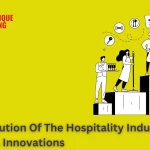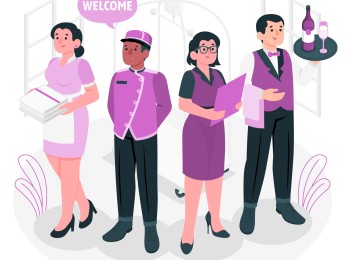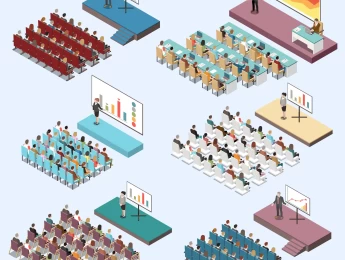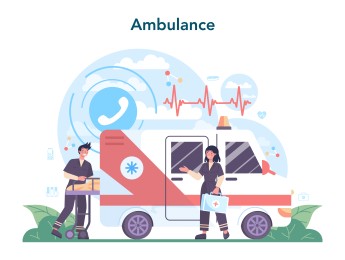The luxury hospitality sector is defined not just by upscale facilities, but by exceptional service, personalized experiences, and flawless attention to detail. Managing luxury operations requires a refined understanding of guest expectations, brand storytelling, and the subtle elements that differentiate good service from unforgettable experiences.
This course provides a structured approach to managing high-end hospitality businesses, covering key areas such as luxury service standards, guest personalization, team culture, branding, and innovation. Through real-world examples and interactive learning, participants will gain the leadership and operational skills needed to exceed the expectations of elite clientele and maintain brand prestige in a competitive global market.
By the end of this course, participants will be able to:
- Define the key characteristics of luxury hospitality and guest behavior.
- Apply standards of service excellence across luxury operations.
- Personalize services and create memorable experiences for VIP guests.
- Build a strong service culture rooted in discretion and attention to detail.
- Manage staff performance to meet luxury expectations.
- Maintain consistency in brand identity and guest touchpoints.
- Adapt to the evolving expectations of luxury travelers.
- Lead innovation and continuous improvement in luxury experiences.
This course is ideal for:
- Hotel managers and executives in luxury properties.
- Guest experience and concierge managers.
- Hospitality professionals seeking to enter the luxury segment.
- Front office and F&B managers in high-end hotels or resorts.
- Owners and investors in boutique or luxury hospitality brands.
- Brand and operations consultants in upscale tourism.
The course uses interactive learning, case studies from top-tier global brands, and practical service design workshops. Participants will reflect on their own service environments, engage in group discussions, and review success stories and challenges in luxury hospitality. Role-play and service simulation activities will allow learners to practice excellence in guest interaction and attention to detail.
Day 5 of each course is reserved for a Q&A session, which may occur off-site. For 10-day courses, this also applies to day 10
Section 1: Understanding Luxury in Hospitality
- What defines luxury? Key principles and guest expectations.
- Evolution of the luxury travel market.
- Emotional drivers behind high-end guest behavior.
- Psychological aspects of luxury service and value perception.
- Types of luxury properties: boutique, branded, experiential.
- Differences between premium and ultra-luxury markets.
- Case study: Defining moments in luxury guest journeys.
Section 2: Service Excellence and Personalization
- The golden rules of luxury service delivery.
- Personalization vs standardization in service encounters.
- Anticipating needs and reading non-verbal guest cues.
- Delivering “invisible” service with maximum impact.
- Crafting unforgettable guest experiences: from welcome to farewell.
- Training staff to handle VIPs and high-profile clients.
- Case study: Exceptional service recovery in luxury hotels.
Section 3: Leading People and Luxury Service Culture
- Hiring and retaining top-tier service talent.
- Building a culture of pride, precision, and care.
- Empowering teams to go beyond expectations.
- Staff etiquette, grooming, and behavior standards.
- Leading by example: the manager’s role in daily excellence.
- Continuous training and feedback systems in luxury hotels.
- Aligning team goals with brand identity.
Section 4: Brand Identity and Guest Experience Consistency
- Creating a luxury hospitality brand story.
- Translating brand values into sensory guest experiences.
- Managing guest expectations across all touchpoints.
- Luxury design, ambiance, and the art of subtle branding.
- Ensuring consistency in multi-property operations.
- Guest feedback loops and proactive brand refinement.
- Case study: Iconic luxury brands and their service DNA.
Section 5: Innovation and Future Trends in Luxury Hospitality
- Redefining luxury: wellness, sustainability, and experience-driven travel.
- Digital transformation in luxury: tech without losing the human touch.
- Sustainable luxury: green practices with elegance.
- Curating bespoke, local, and immersive experiences.
- Using data to personalize services without intruding.
- Adapting to the new generation of luxury travelers.
- Future-proofing luxury hospitality businesses.
Upon successful completion of this training course, delegates will be awarded a Holistique Training Certificate of Completion. For those who attend and complete the online training course, a Holistique Training e-Certificate will be provided.
Holistique Training Certificates are accredited by the British Accreditation Council (BAC) and The CPD Certification Service (CPD), and are certified under ISO 9001, ISO 21001, and ISO 29993 standards.
CPD credits for this course are granted by our Certificates and will be reflected on the Holistique Training Certificate of Completion. In accordance with the standards of The CPD Certification Service, one CPD credit is awarded per hour of course attendance. A maximum of 50 CPD credits can be claimed for any single course we currently offer.
- Course Code IND15 - 139
- Course Format Classroom, Online,
- Duration 5 days










